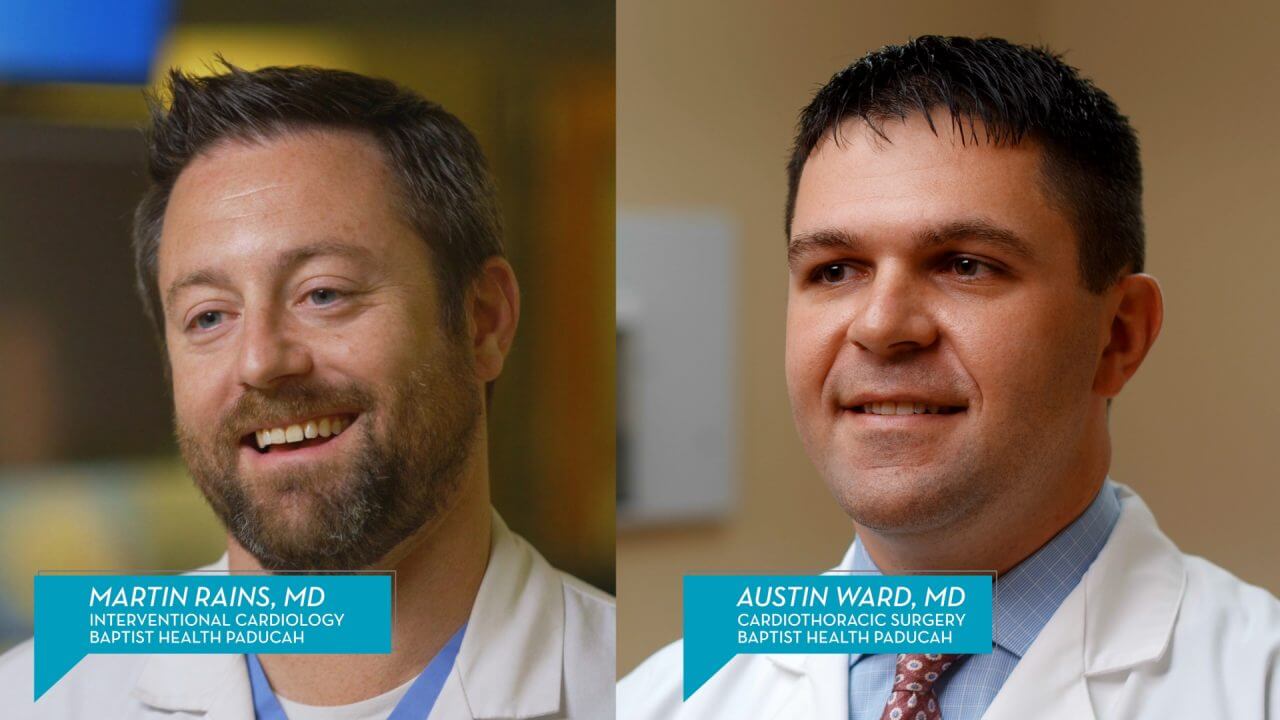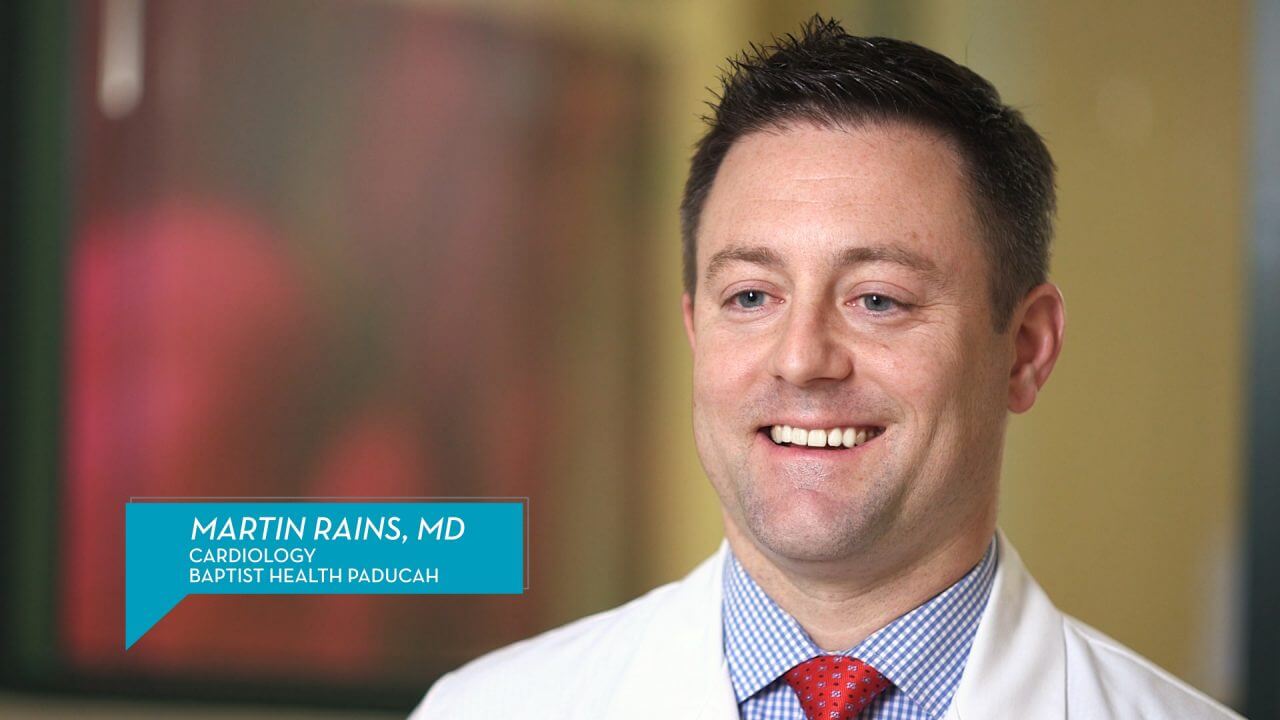The Cardiology Physicians in Paducah, KY
Baptist Health Paducah: The Lifesaving Heart Team
Baptist Health's cardiology teams work together to provide the best outcomes for patients. Learn how our Heart Care team uses a multidisciplinary approach.
The team approach to The Cardiology Physicians in Paducah, KY, HealthTalks Transcript:
Byron Hodge, patient, Brookport, Illinois:
I didn't have any heart attack signs at all. I just felt nauseous and went and threw up in the sink. I told my wife then that we need to go to the hospital.
Martin Rains, MD:
When Mr. Hodge got to our cath lab and we proceeded with our normal cardiac catheterization, where we take pictures of his heart's arteries, we found severe blockages in really all of the arteries that supply the heart with blood. Very quickly, I could identify that his disease was surgical coronary artery disease. I first called our surgeon, Dr. Ward, who came very quickly to the cath lab.
Austin Ward, MD:
The best way that we can help unload the heart and assist its function is to place a small pump through the groin that sits inside the heart called an Impella CP®, which Dr. Rains placed in the cath lab.
Martin Rains, MD:
It allowed him to survive and improve over the next couple of days, [which] allowed him to have open-heart bypass surgery with Dr. Ward.
Austin Ward, MD:
Dr. Rains and I, and the cardiology team, work together all the time. We know that patient outcomes are best when we put our heads together [and] work as a team to come up with the best plan for each patient. Mr. Hodge definitely benefited hugely from having a multidisciplinary approach.
Byron Hodge:
All the people there were so kind to me, they’re just real good people. The doctors though, they were great, they were friendly, and made me feel like they were friends instead of just my doctors. I wouldn't go anywhere else but Baptist Health Paducah.



